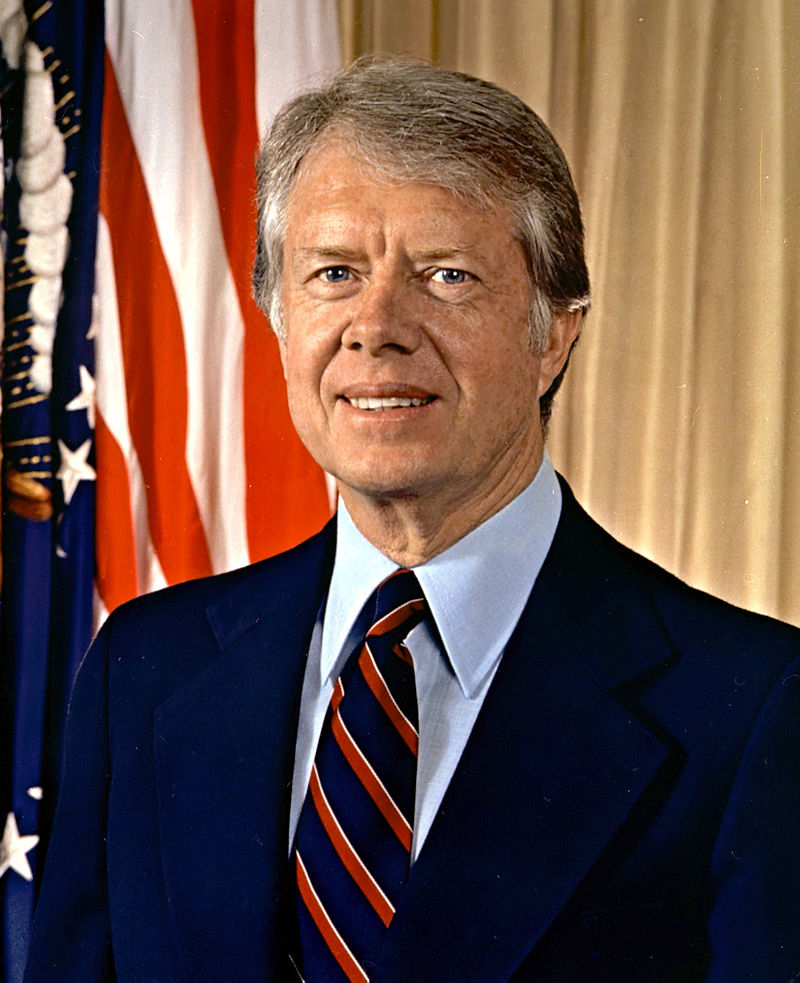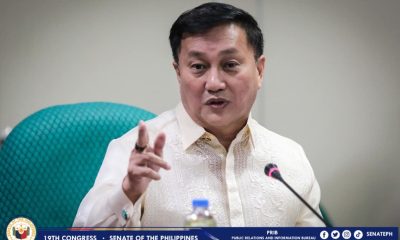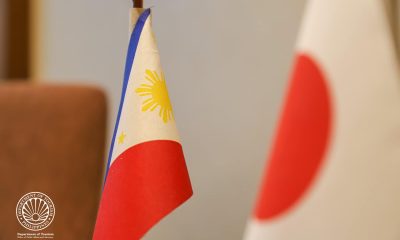American News
Carter to Trump: shun military action, keep country at peace

“I pray that he would keep our country at peace and not exaggerate or exacerbate the challenges that come up with North Korea, in Russia or in Syria,” Carter said in an interview Wednesday. “I hope he realizes very profoundly as I did, and as other presidents have done, that any nuclear exchange could involve catastrophe for all human beings.” (Photo By Department of Defense. Department of the Navy, Public Domain)
ATLANTA – Expressing pride in his own record of peace, former President Jimmy Carter warned that President Donald Trump should steer clear of any military action involving Syria or other world hot spots and avoid a nuclear attack at all costs.
“I pray that he would keep our country at peace and not exaggerate or exacerbate the challenges that come up with North Korea, in Russia or in Syria,” Carter said in an interview Wednesday. “I hope he realizes very profoundly as I did, and as other presidents have done, that any nuclear exchange could involve catastrophe for all human beings.”
The 93-year-old former president added that even a lesser military attack “is a dangerous thing” than can spiral out of control.
His remarks come as Trump continues to threaten attacks on Syria in response to a suspected chemical attack on civilians. As recently as Thursday morning, Trump said on social media that an attack would come “very soon or not so soon at all.” Russia has countered that such a move would have “grave repercussions.”
Trump has previously had threatening exchanges with North Korean leader Kim Jong Un but now says he’s in talks about having a summit with Kim. Carter has for decades advocated that the U.S. deal more directly with the insular communist dictatorship.
Carter made his comments as he touted a new book – “Faith: A Journey for All” – in an interview that touched on issues from Trump and the economy to disputes within American Christianity. An outspoken Baptist, Carter argues that Americans are experiencing the long erosion not just of spiritual faith but of confidence in public institutions.
“A lot of folks have lost faith in the superiority of democracy,” Carter told The Associated Press, noting widening wealth disparities, more open discrimination against minorities and immigrants, a political process controlled by money and an endless cycle of wars and international entanglements.
Carter, a Democrat, has been critical of Trump, a Republican, on some fronts, and he said “a lot of people” have “realized they made a mistake” supporting Trump. Yet Carter made clear that his critique is not about the current occupant of the Oval Office.
In fact, he said, Trump’s election was a product of many ills Carter identifies, not their cause.
“A lot of average Americans and working people in our country didn’t feel that we were getting a fair shake from government … and they wanted to see something new,” Carter said.
The problems that fueled Trump’s rise, Carter said, are of graver concern than anything surrounding the administration, including whatever results from a widespread inquiry by special counsel Robert Mueller.
“I pray that he will promote human rights, equality among all people, and that he will value the truth,” Carter said, though he added that the long-term survival of democracy will turn on “the resilience of the American public” and “our constitutional foundation.”
Long a critic of U.S. policy toward North Korea, Carter actually aligns well with Trump’s latest moves toward Pyongyang.
No sitting U.S. president has been to North Korea, but Carter has gone at least three times as a former president, most recently in 2011, when he tried to help spur North Koreans toengage in multilateral talks about dismantling their nuclear weapons program.
Carter said he still believes world powers can “find a way to live in harmony and peace with people who are our enemies and with whom we have strong differences of opinion.
“That’s going back to the basic principles of Christianity: love your neighbour and … even love your enemies,” he said. “We haven’t reached that point yet, but we have the potential todo it.”
Carter is accustomed to flouting conventional wisdom on international affairs.
As president, Carter established official diplomatic relations with China in 1978 – six years after President Richard Nixon made a landmark trip to Beijing. The same year, Carter drove peace negotiations between Israel and Egypt in the Camp David Accords, though he couldn’t replicate the feat between Israel and the Palestinians.
“I took a position of wanting to see balance between Israel and the Palestinians,” he said, recalling that stance as an underappreciated factor in many American evangelicals shifting their allegiances to the Republican Party.
“Evangelicals are naturally inclined from a religious point of view to be loyal to Israel,” he said, because of their more literal interpretations of the Bible. Those Christians also hold “that the Jews should also all become Christians – that’s not often mentioned,” Carter added.
Aided also by Democratic Party positions on everything from legalized abortion to women’s rights, Carter said Republicans corralled most white evangelicals long before that voting bloc helped propel Trump into the White House. That long trend, Carter said, makes it less surprising that evangelicals would back a man with Trump’s personal profile, from his two divorces to the more recent allegations of extramarital affairs with an adult film star and a Playboy model.
In his tenth decade of life, Carter said he remains confident that U.S. Christians and the wider electorate can navigate a factional era – the church by emphasizing its core doctrinal principle of faith in Jesus Christ, the nation by recommitting to a belief in fairness and equal opportunity.
“There are reasons to have concern for the future,” Carter said, “but the moral principles and ethical principles that have been guiding lights are still there.”





















